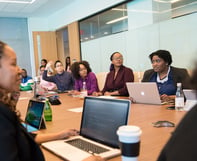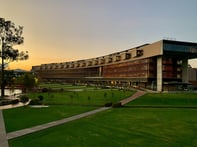Published on
Non-Traditional Higher Education Takes a Village

Building a community among non-traditional students is of vital importance for their success and continued academic achievements. However, no college or university should be alone in developing that community. The city itself must make accessible education one of its goals and work with institutions to build both the education of the citizens of the community, but also availability to access. In this partnership, I view the city being responsible for creating accessibility and the schools, while the university or college is responsible for the education.
The city must be invested in building a culture of education. One of the problems I see on campus often is students needing to bring their children to school with them because the schedule for students in elementary, junior high and high school doesn’t align with that of campus. How this problem might be mitigated is by having a partnership between the city schools and the university to create certain days for children to visit campus. Having tours for children would show them that the city cares about their education not only now, but in the future. This would establish in their minds that there is value in what they are learning in the present to prepare them for the future, and also provide valuable opportunities for their parents on campus to teach them what they are learning about.
One of the things I have recognized as valuable in my community is high school counselors. These individuals, from our local universities, prepare high school students to attend college. These counselors have an understanding of FAFSA and financial aid systems of their college and state. They help the youth to understand how they can start preparing for college while in high school. These counsellors are also available for the parents who might be looking into returning to school. By being present for the students and their parents, the counsellor is able to bring both generations back to school to continue their education and move the community toward greater stability.
Perhaps the most important thing that both the city and university need help with developing is a job market for those graduating. Career centers on campus are good, and job services are useful as well. But there is a need for businesses in the community who are invested in education to make their presence known on campus. I’ve often seen this done with job fairs, though as I walk around there tends to be an overrepresentation of jobs for either business or sciences. These jobs are important, but if we are to value art also, we need to have opportunities in the community for writers and artists to share their creativity. Businesses displaying local art from the college and allowing writers to share their work in their establishments reminds the community at large that there is more to education than just business and science.
I’m not suggesting this is easy to make into reality. It takes collaboration between the education system and the local government to make happen. Students must be willing to go out and expose to their community what they have learned in school. Universities must increase their vision and include children growing up as part of it. An educated society can only be developed through the cooperation of cities, businesses, schools and, most importantly, citizens. We can cooperate with each other in building an educated society or we can continue to go our separate ways and watch as the things we claim to value fail before our very eyes.
Author Perspective: Student



